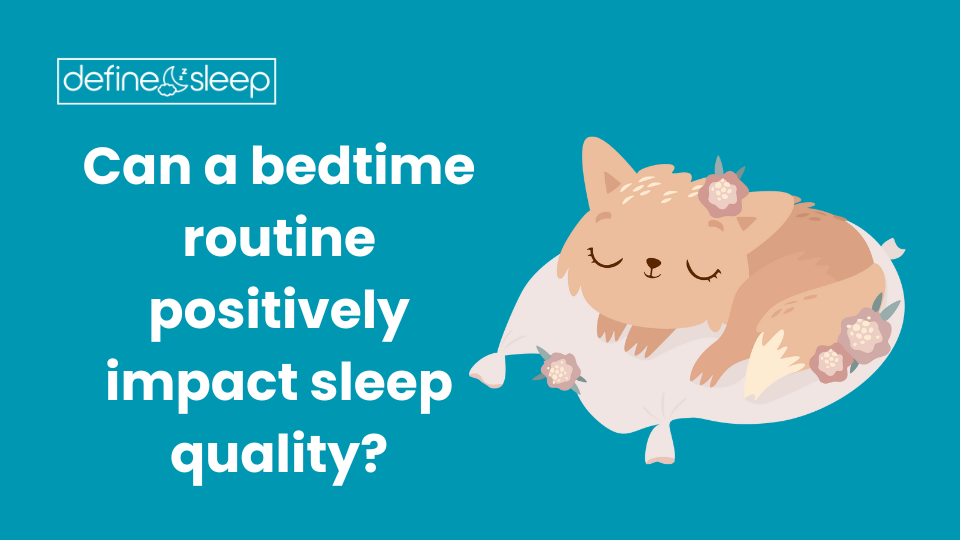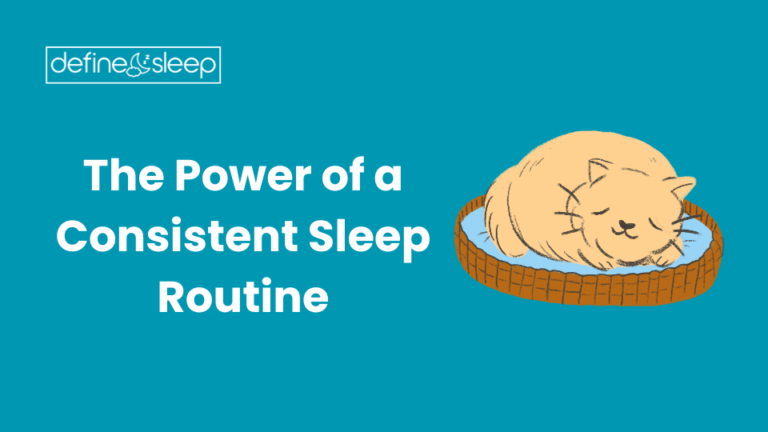In the hustle and bustle of modern life, finding a moment of tranquillity can be a challenge. As the world continues to move rapidly, individuals are increasingly seeking ways to optimize their well-being, and one area that has garnered attention is the impact of bedtime routines on sleep quality. In this exploration, we explore the intriguing question: Can a bedtime routine positively impact sleep quality? Let’s explore the psychological and biological perspectives and uncover the potential benefits.
1.1: The Psychology of Bedtime Rituals
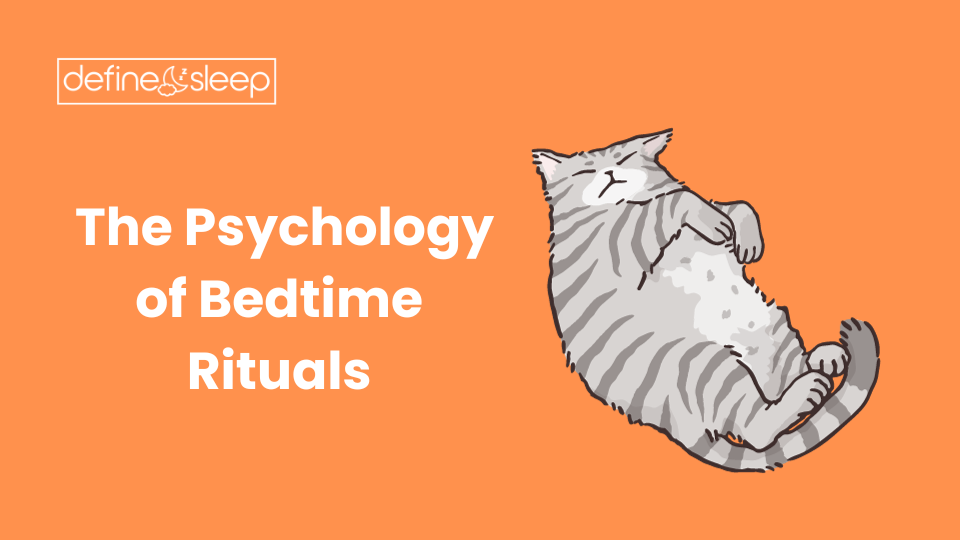
1. The Connection Between Routine and Emotional Control
In the realm of psychology, bedtime routines are seen as more than just a series of activities before sleep; they are viewed as powerful tools that can influence emotional well-being. One common interpretation revolves around the concept of dynamic control. Individuals with established bedtime rituals often report a greater sense of emotional stability and resilience. The predictability of a routine can create a sense of security, helping to manage stress and anxiety levels.
1.2: Biological Implications of Bedtime Rituals
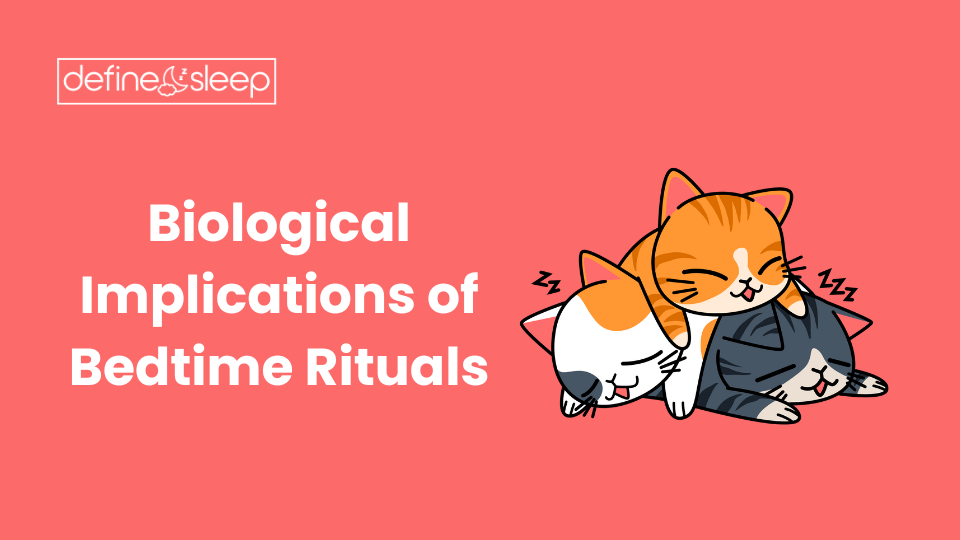
1. Circadian Rhythms and Sleep-Wake Cycles:
The biological clock, governed by circadian rhythms, plays a crucial role in regulating sleep-wake cycles. Establishing a consistent bedtime routine can help align these rhythms, signaling to the body that it’s time to wind down. The synchronization of circadian rhythms contributes to the overall quality of sleep, ensuring a more restful and rejuvenating experience.
2. Hormonal Balance and Sleep Quality:
Beyond circadian rhythms, bedtime rituals can impact hormone levels, influencing sleep quality. The release of melatonin, often referred to as the sleep hormone, is intricately linked to environmental cues. A well-crafted bedtime routine, especially one that minimizes exposure to artificial light, can enhance melatonin production, promoting a smoother transition into restorative sleep.
1.3: Unpacking the Psychological Aspect
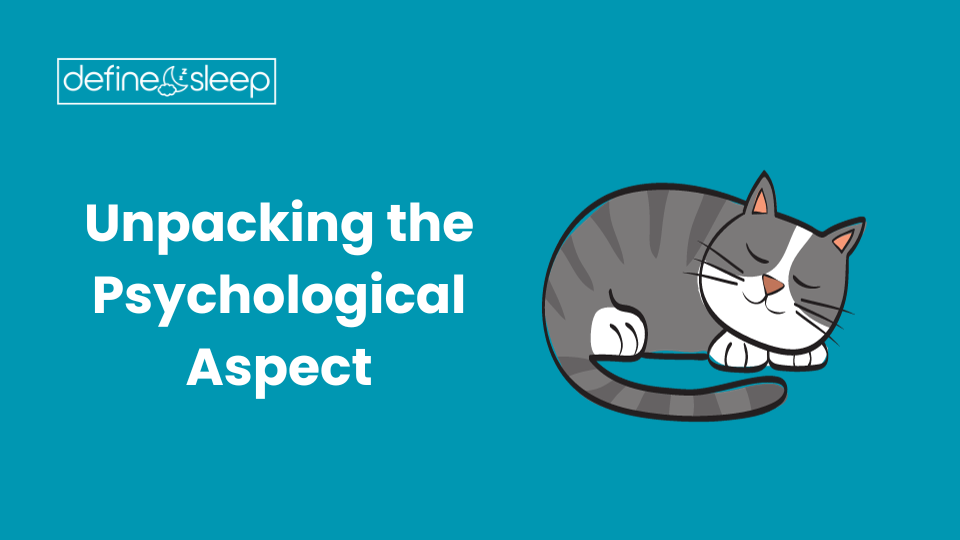
1. Stress Reduction Through Routine
One common psychological interpretation related to bedtime routines is mitigating stress, a significant factor in emotional control. Calming activities before bedtime, such as reading a book, practicing mindfulness, or taking a warm bath, can effectively reduce stress levels. The gradual winding down process allows the mind to shift from the day’s demands, fostering a serene mental state conducive to better emotional regulation.
2. Addressing Anxiety Through Predictability
For individuals prone to anxiety, the lack of emotional control can be a considerable challenge. Bedtime routines provide a structured and predictable sequence of events, offering a sense of control over the immediate environment. This predictability can serve as a powerful tool in managing anxiety, allowing for a more peaceful transition into sleep.
1.4: Crafting Your Ideal Bedtime Routine: Practical Tips

1. Personalization and Flexibility
Creating a bedtime routine is a personal journey, and what works for one person may not work for another. It’s essential to tailor the way to individual preferences and needs. Whether it involves reading, gentle stretching, or listening to soothing music, the key is to find activities that induce relaxation.
2. Consistency is Key
The effectiveness of a bedtime routine lies in its consistency. Aim to go to bed and wake up at the same time each day, even on weekends. This consistency reinforces the body’s natural circadian rhythms, enhancing the overall effectiveness of the routine.
3. Limiting Screen Time
In the age of technology, it’s tempting to scroll through screens before bedtime. However, the blue light emitted by electronic devices can interfere with melatonin production. Consider establishing a screen-free period before sleep to optimize the biological benefits of your bedtime routine.
Conclusion:

In conclusion, “Can a bedtime routine positively impact sleep quality?” unveils a complex interplay between psychology and biology. From the perspective of emotional control, bedtime rituals offer a pathway to stress reduction and anxiety management. Biologically, the synchronization of circadian rhythms and the modulation of hormone levels contribute to a more restful sleep experience.
As individuals seek holistic approaches to well-being, the power of a well-crafted bedtime routine cannot be overlooked. By understanding the psychological and biological mechanisms at play, one can embark on a journey toward better sleep quality and improved health.
FAQ

1Q: How does a bedtime routine impact emotional control?
Bedtime routines can positively influence emotional control by providing a sense of predictability and stress reduction. Calming activities before sleep contribute to a serene mental state, helping manage stress and anxiety levels.
2Q: What role do circadian rhythms play in the effectiveness of a bedtime routine?
Circadian rhythms, governed by the biological clock, regulate sleep-wake cycles. A consistent bedtime routine helps align these rhythms, signaling the body to wind down. This synchronization contributes to improved sleep quality and a more restful experience.
3Q: Can a bedtime routine address the lack of emotional control associated with anxiety?
Yes, bedtime routines can effectively manage anxiety by providing a structured and predictable sequence of events. This predictability offers a sense of control over the immediate environment, facilitating a peaceful transition into sleep.
4Q: How does melatonin production relate to bedtime rituals?
Melatonin, often called the sleep hormone, is influenced by environmental cues. A well-crafted bedtime routine, especially one that minimizes exposure to artificial light, can enhance melatonin production. This, in turn, promotes a smoother transition into restorative sleep.
5Q: What are some practical tips for crafting an effective bedtime routine?
Personalization and consistency are vital in crafting a bedtime routine. Tailor activities to individual preferences, maintain a consistent sleep schedule and limit screen time before bed to optimize the psychological and biological benefits of the way.
Help From Chatgpt 4

